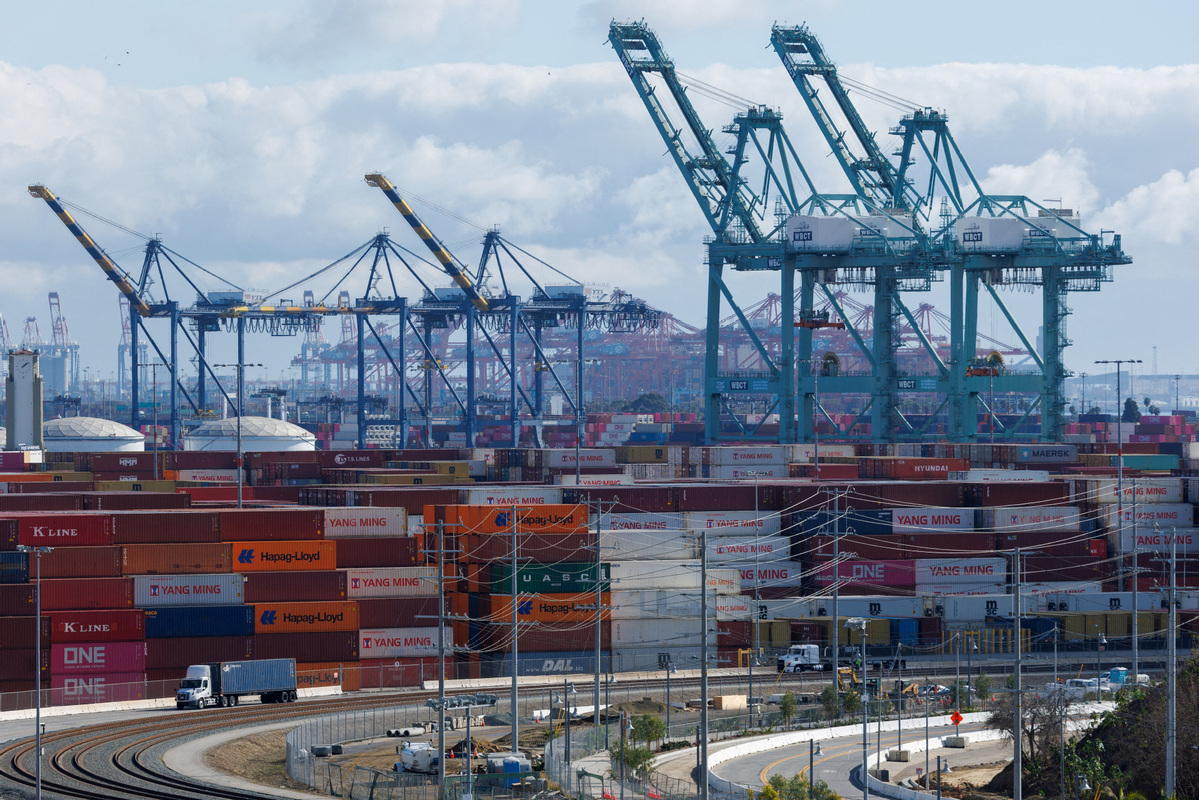Exploitative trade policy calls for 'united front': China Daily editorial


On April 9, when US President Donald Trump put a 90-day pause on the hefty "reciprocal" tariffs he had announced the previous week, the administration seemed quite confident that potential trade deals would be reached soon.
Yet the United States has so far only reached a limited deal with the United Kingdom. Now with only a week left before the July 9 tariff deadline arrives, the US and its major trading partners are still engaged in tug-of-war-like trade negotiations. Failure to agree on bilateral trade deals in time could lead to the US administration imposing tariffs of up to 50 percent on goods from many countries. The countermeasures, trade tensions and uncertainty that would inevitably result would then be a further drag on global economic growth.
To prevent that scenario from materializing, countries must seek to resolve their trade differences through dialogue and consultations based on mutual respect and on an equal footing.
Yet, progress has been slow in regard to countries reaching any meaningful deals with the US. Japan's hopes of securing a trade deal with the US before the current pause on tariffs expires took another blow on Monday, with Trump describing the US ally as "spoiled", hinting that he will send a letter declaring the trade talks over. The US leader has accused Japan of "unfair" automobile trade with the US, and has asked Japan to import more oil and rice, among other goods, from the US.
Talks with the 27-member European Union have also stalled. EU trade chief Maros Sefcovic, who is on a three-day visit to Washington, has pushed back against Trump's claim of unfairness in US-EU trade relations, saying he is seeking dialogue to "avoid the unnecessary pain of measures and countermeasures".
Moreover, US talks with Canada hit a snag last week when Trump threatened to terminate all discussions on trade with the country if Ottawa goes ahead with its plan to levy a digital services tax that could impact US high-tech firms such as Amazon. That threat prompted Canada to hastily rescind the tax on Sunday, in a move that the White House described as Ottawa having "caved" to Washington.
The trade tensions underscore the high stakes involved as countries seek to gain an advantageous position in the talks, as well as the distrust of the US which they see as trying to use tariffs as a weapon to exert maximum pressure for its own selfish interests. The lack of progress in the trade talks has led to speculation that some of the US' trade partners might try to curry favor with the US by pushing China under the proverbial bus.
For example, the EU trade chief has suggested that Brussels and Washington strengthen their transatlantic partnership claiming that they share "common challenges" such as "global overcapacities driven by nonmarket practices" in reference to China. Such a claim goes against the facts.
History has proved that there are no winners in a trade or tariff war, and protectionism is a dead end. China is ready to work with other countries to safeguard the World Trade Organization-centered, rules-based multilateral trading system so as to promote shared economic growth and achieve sustainable development. Openness and cooperation in trade, instead of unilateralism and protectionism, would lead to greater economic prosperity.
Rather than a reductive trade war what the world urgently needs is a united front against any practice that violates WTO rules, undermines the rules-based multilateral trading system, or severely disrupts the global economic order. Unfortunately, a lot of work still needs to be done in that regard.


































